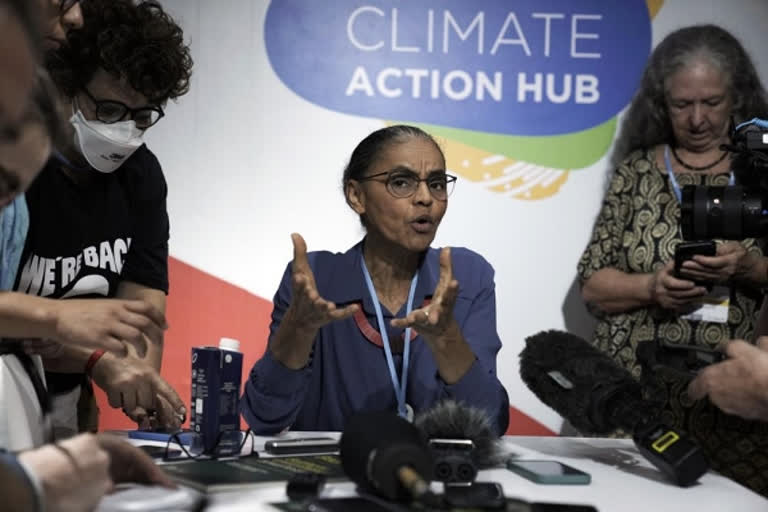Sharm el-Sheikh: Marina Silva, a former environmental minister and potential candidate for the job again, on Saturday brought a message to the UN climate summit: Brazil is back when it comes to protecting the Amazon rainforest, the largest in the world and crucial to limiting global warming. The recent election of leftist President-elect Luiz Incio Lula da Silva represents a potentially huge shift in how Brazil manages the forest compared to current President Jair Bolsonaro. Da Silva was expected next week to attend the conference known as COP27 in Sharm el-Sheikh, Egypt.
Silva said the fact that da Silva was coming to the summit, months before he assumes power January 1, was an indication of the commitment of his administration to protect forests and take a leadership role on combating climate change. Da Silva was expected to meet with several heads of delegations. Brazil will return to the protagonist role it previously had when it comes to climate, to biodiversity, said Silva, who spoke with reporters at the Brazilian Climate Hub.
Bolsonaro, who was elected in 2018, pushed development of the Amazon, both in his actions and rhetoric. Environmental agencies were weakened and he appointed forest managers from the agribusiness sector. The sector opposes the creation of protected areas such as Indigenous territories and pushes for the legalisation of land robbing.
The deforested area in Brazil's Amazon reached a 15-year high from August 2020 to July 2021, according to official figures. Satellite monitoring shows the trend this year is on track to surpass last year. Upon winning the October elections, da Silva, president between 2003 and 2010, promised to overhaul Bolsonaro's policies and move toward completely stopping deforestation, referred to as Deforestation Zero. That will be a huge task.
While much of the world celebrates policies that protect the rainforest in Brazil and other countries in South America, there are myriad forces pushing for development, including among many Amazon dwellers. And Da Silva, while much more focused on environmental protection compared to Bolsonaro, had a mixed record as president. Deforestation dropped dramatically during the decade after Da Silva took power, with Marina Silva as environment minister.
But in his second term, Da Silva began catering to agribusiness interests, and in 2008 Marina Silva resigned. In recent weeks, news reports in Brazil have focused on a possible alliance between Brazil, the Congo and Indonesia, home to the largest tropical forests in the world. Given the moniker OPEC of the Forests, in reference to the Organisation of the Petroleum Exporting Countries and the way they regulate oil production, the general idea would be for these three countries to coordinate their negotiating positions and practices on forest management and biodiversity protection.
The proposal was initially floated during last year's climate summit in Glasgow, Scotland, according to the reports. When asked for details on any alliance, including whether it might be announced during the second week of the summit, Silva demurred, making clear that any such announcement wasn't hers to make.
